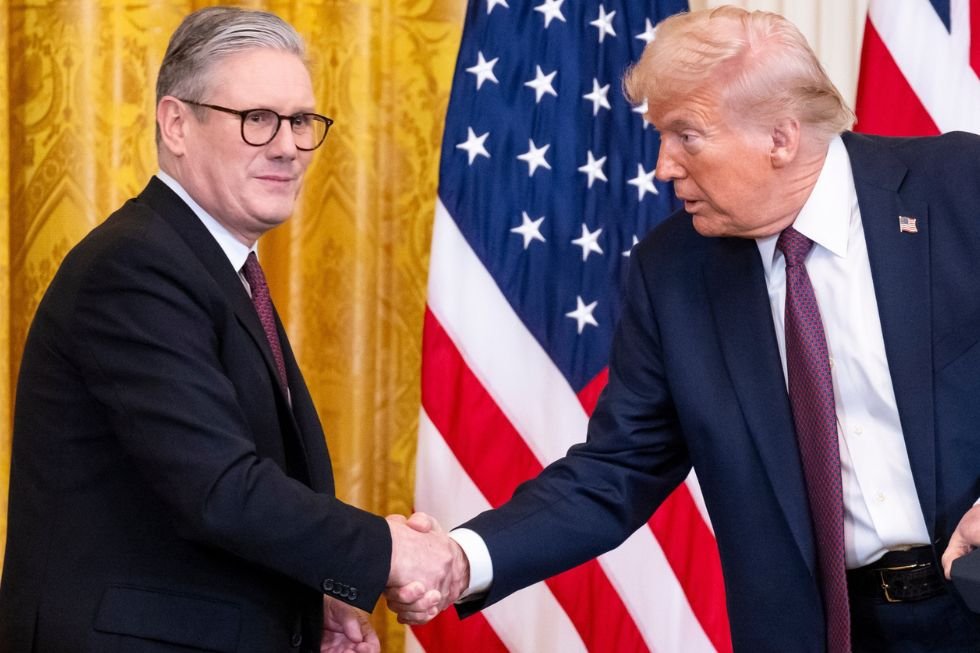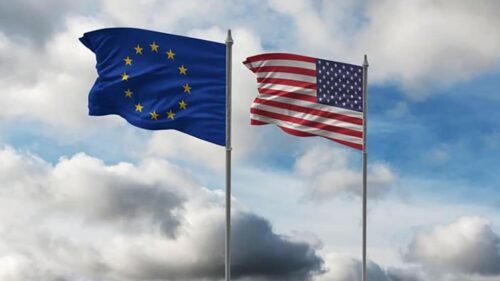Across the West, there is little doubt that the election of US President Donald Trump has brought a wide variety of challenges. Yet it also undeniably presented a lifeline, particularly for a few left-wing governments who are ready to leverage the new American reality to their benefit.
That lifeline was felt no greater than in Canada. In April, Canadian liberals reversed a multiyear trend of support toward the Conservative Party and its Trump-friendly leader, Pierre Pollievre, giving Canadian Labour and new Prime Minister Mark Carney the reins for yet another five years. The reversal was stark.
From January to March, Labour’s support in polls doubled from around 20% to nearly 40%. That same period saw the Conservatives decline from 45% to 35%. In three short months, Pollievre went from the universal favorite to be the country’s next prime minister to losing his seat.
The lifeline was seized too by the center-left Australian Labour Party and its leader, Anthony Albanese. Only several days after the Canadian election, Albanese won a come-from-behind election against the conservative Peter Dutton, who had parroted much of the same economic and cultural policies of the “Make America Great Again” (MAGA) base. Similar to Canada, polls in Australia indicate a significant shift in public sentiment in response to changes in the United States — changes that enabled Albanese’s reelection. The “Trump Effect”, particularly in the Anglophone West, is very real.
Britain’s exception: Why the Trump backlash never came
In Britain, the backlash has been near nonexistent. While Canadian and Australian liberals surged in polls and claimed new electoral victories, UK Labour is desperately clinging to power, just as it was prior to Trump’s return.
Polling pegs Labour support to just above 20%, with some pollsters showing the right-wing populist Reform party ahead by double digits. In the same week that the Canadian and Australian left-wing parties won parliamentary majorities, Starmer’s Labour recorded devastating losses in local elections, including a crippling loss of a parliamentary stronghold seat to Reform. Unlike in Canada and Australia, Trump played little role in the issues that decided the elections, despite the fact that Reform has echoed some of the most unpopular policies coming from the White House.
Britain’s experience since January is in part due to the cultural fabric of the country. Public opinion shows that Trump’s antiimmigrant and antiwoke politics have fertile ground in Britain, particularly in working-class parts of England — Labour’s historic base. Approval of Trump in the UK may seem low, but relative to Canada and the rest of Europe, it could be far worse. This has allowed Reform’s Nigel Farage not only to survive the current political environment in the West but to thrive.
More importantly, Britain’s lack of an anti-Trump bump is because the government in Westminster has worked to make it that way. Starmer’s government has rigorously courted Trump while steering clear of the pitfalls that befell others. His much-applauded second invitation from the King was a shrewd move that played on Trump’s well-documented interest in the British royal family.
On the same trip, moreover, he disarmed JD Vance’s criticism of policed speech in the UK in a way that prevented it from spiraling out of control, knowing that only days previous in that very room, Ukraine’s leader had invited catastrophe by provoking America’s new leaders. Since February, Starmer’s deference has been on full display, most recently in the June NATO summit, which included scenes frankly unimaginable for a leader like Mark Carney.
Former Canadian Prime Minister Justin Trudeau, Canadian Premier Doug Ford and Mark Carney may have been courting ire from the White House, but they have done so from a place of relative security. Canada, like the United States, enjoys the geographic benefits of the Atlantic and Pacific Oceans, allowing it to play hardball with the White House without any serious threats to its security. Europe, meanwhile, has had no such luxury. The US remains a key partner in Ukraine’s national defense, a chief concern across Europe and one that Starmer has made a top priority. The loss of American weapons and intelligence in Ukraine is simply a loss that Europe and Britain cannot afford.
The special relationship vs. political opportunity
Nevertheless, Starmer’s rhetoric has remained far more amiable towards Trump than even his European counterparts, whose security interests are aligned. That is because the United States separately fulfills a unique foreign policy goal for the UK: geopolitical relevance. While France, Germany and others realized that to project itself into faraway regions of the globe would overextend their limited resources, Britain — through its “special relationship” with the United States — has been able to maintain a potent degree of international reach.
The loss of that geopolitical relevance poses less of a threat to British political and economic security than it would to the fragility of British society and identity, which is built on the memory of an international superpower. Indeed, it’s painfully obvious that any political benefit of leveraging Trump and American populism as a wedge issue in Britain would likely be outweighed by the British people’s horror at the weaknesses laid bare by the loss of a powerful ally.
Though Starmer has no clear plans to shift, that may change as Trump enters the “lame-duck” and his influence and approval wane. Sheer desperation and frustration, too, may get the best of the Labour strategists who see Farage’s affability towards Trump, remarkable for a mainstream European politician, as a vital weakness they could exploit.
Lucky for Labour, they have a long runway. The next general election is not due until as late as 2029, long after former President Trump’s theoretical last day in the White House. If those incentives eventually appear, anti-Trump politics could be the lifeline Labour needs. But if cases like Canada are anything to go by, the “special relationship”, which Britain has cherished more than anything else, may be the casualty.
[Avantika Varghese edited this piece]
The views expressed in this article are the author’s own and do not necessarily reflect Fair Observer’s editorial policy.
Support Fair Observer
We rely on your support for our independence, diversity and quality.
For more than 10 years, Fair Observer has been free, fair and independent. No billionaire owns us, no advertisers control us. We are a reader-supported nonprofit. Unlike many other publications, we keep our content free for readers regardless of where they live or whether they can afford to pay. We have no paywalls and no ads.
In the post-truth era of fake news, echo chambers and filter bubbles, we publish a plurality of perspectives from around the world. Anyone can publish with us, but everyone goes through a rigorous editorial process. So, you get fact-checked, well-reasoned content instead of noise.
We publish 3,000+ voices from 90+ countries. We also conduct education and training programs
on subjects ranging from digital media and journalism to writing and critical thinking. This
doesn’t come cheap. Servers, editors, trainers and web developers cost
money.
Please consider supporting us on a regular basis as a recurring donor or a
sustaining member.
Will you support FO’s journalism?
We rely on your support for our independence, diversity and quality.








Comment